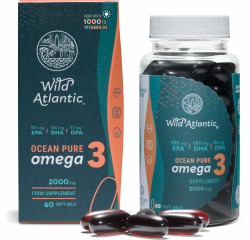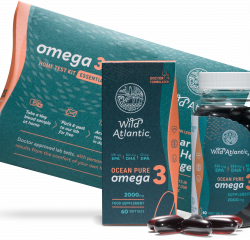Should You Keep Omega-3 Supplements in the Fridge?
Omega-3 supplements, known for their numerous health benefits, are derived from fish oil and contain essential fatty acids such as EPA and DHA. Given their composition, proper storage of these supplements is crucial to maintaining their potency and preventing them from going rancid. One common question is whether omega-3 supplements should be kept in the fridge. This article will explore the best practices for storing omega-3 supplements to ensure their quality and effectiveness.
Why Storage Conditions Matter for Omega-3 Supplements
Omega-3 fatty acids are highly susceptible to oxidation, which can lead to the degradation of the oil and the formation of harmful compounds. Oxidation is accelerated by exposure to heat, light, and air. Proper storage conditions can significantly reduce the risk of oxidation, preserving the quality and benefits of the omega-3 supplements.
Refrigeration: Is It Necessary?
Refrigerating omega-3 supplements can be beneficial for several reasons:
- Extended Shelf Life: Keeping omega-3 supplements in the fridge can slow down the oxidation process, thereby extending their shelf life and maintaining their potency for a longer period.
- Preservation of Potency: Lower temperatures help in preserving the essential fatty acids, ensuring that you get the maximum health benefits from the supplement.
- Prevention of Rancidity: Omega-3 supplements can become rancid if not stored properly. Refrigeration helps in preventing this, keeping the supplements fresh and safe to consume.
How to Store Omega-3 Supplements
Here are some guidelines to follow when storing your omega-3 supplements:
- Refrigeration: Store omega-3 supplements in the refrigerator to protect them from heat and light. This is particularly important if you live in a warm climate.
- Avoid Freezing: While refrigeration is beneficial, freezing omega-3 supplements is not recommended as it can alter the oil’s structure and efficacy.
- Keep the Bottle Tightly Closed: Ensure that the bottle is tightly sealed to minimize exposure to air, which can lead to oxidation.
- Dark and Cool Storage: If refrigeration is not an option, store the supplements in a cool, dark place away from direct sunlight and heat sources.
- Check the Expiration Date: Always check the expiration date on the bottle and consume the supplements within the recommended period to ensure their effectiveness.
Conclusion
Refrigerating omega-3 supplements is a good practice to ensure they remain potent and effective. By keeping them in the fridge, you can extend their shelf life, prevent rancidity, and maintain their health benefits. If refrigeration is not possible, storing them in a cool, dark place and ensuring the bottle is tightly sealed can also help preserve their quality. For more insights on omega-3 supplements, check out our articles on the benefits of taking fish oil and the complete guide to testing for omega-3 levels.





























